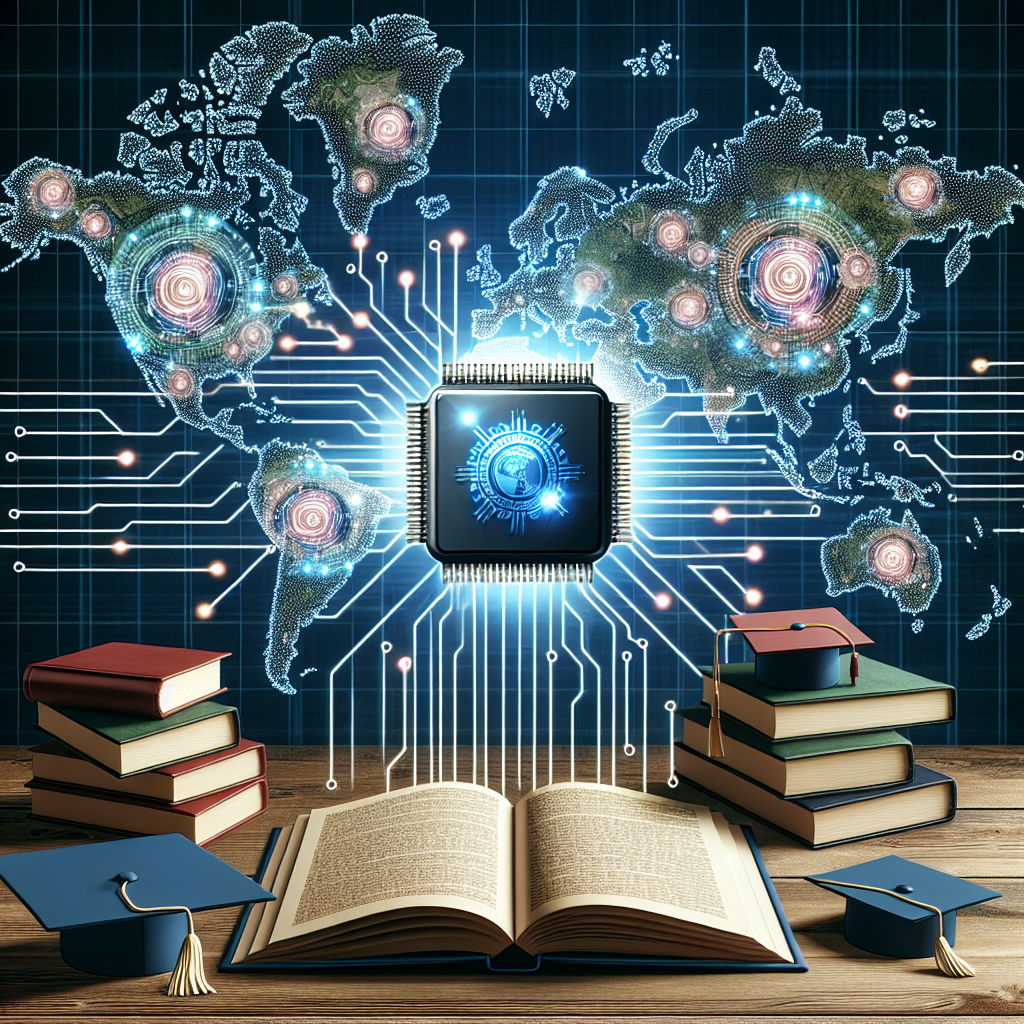The Role of AI in Global Education Initiatives
In recent years, artificial intelligence (AI) has been making significant strides in various fields, including education. AI technology has the potential to revolutionize the way we teach and learn, making education more personalized, accessible, and effective for students all around the world. As global education initiatives continue to expand, AI is playing an increasingly important role in shaping the future of education.
One of the key benefits of AI in education is its ability to personalize learning for each student. By analyzing data on student performance and behavior, AI can tailor instruction to meet the individual needs of each student. This personalized approach can help students learn at their own pace and in a way that is best suited to their unique learning style. This can lead to improved academic outcomes and a more engaging and effective learning experience for students.
AI can also help improve access to education for students in remote or underserved areas. Through online learning platforms and virtual classrooms powered by AI, students can access high-quality educational content and resources from anywhere in the world. This can help bridge the gap between students in urban and rural areas, providing equal opportunities for all students to receive a quality education.
Furthermore, AI can assist teachers in their day-to-day tasks, freeing up time for them to focus on more meaningful interactions with students. AI-powered tools can help automate grading, lesson planning, and administrative tasks, allowing teachers to spend more time on individualized instruction and support for their students. This can lead to more effective teaching practices and improved student outcomes.
In addition to personalized learning and improved access to education, AI can also play a role in enhancing the quality of education through data analysis and predictive analytics. By analyzing large amounts of data on student performance, AI can help identify trends and patterns that can inform instructional practices and curriculum development. This can lead to more effective teaching strategies and a better understanding of how students learn best.
Overall, the role of AI in global education initiatives is to help make education more personalized, accessible, and effective for all students. By harnessing the power of AI technology, we can create a more inclusive and equitable education system that meets the needs of students from all backgrounds and abilities.
FAQs
Q: How is AI being used in education today?
A: AI is being used in education in a variety of ways, including personalized learning, online learning platforms, virtual classrooms, and data analysis. AI-powered tools can help automate grading, lesson planning, and administrative tasks, as well as provide insights into student performance and behavior.
Q: What are the benefits of using AI in education?
A: The benefits of using AI in education include personalized learning, improved access to education, enhanced teaching practices, and better data analysis. AI can help tailor instruction to meet the individual needs of each student, bridge the gap between students in urban and rural areas, assist teachers in their day-to-day tasks, and inform instructional practices and curriculum development.
Q: Are there any challenges to using AI in education?
A: While AI has the potential to revolutionize education, there are also challenges to consider. These include concerns about data privacy and security, the potential for bias in algorithms, and the need for training and support for teachers and students to effectively use AI-powered tools.
Q: How can AI help bridge the gap between students in urban and rural areas?
A: AI-powered online learning platforms and virtual classrooms can help bridge the gap between students in urban and rural areas by providing equal access to high-quality educational content and resources. This can help ensure that all students, regardless of their location, have the opportunity to receive a quality education.
In conclusion, AI has the potential to transform education on a global scale by making it more personalized, accessible, and effective for all students. By harnessing the power of AI technology, we can create a more inclusive and equitable education system that meets the needs of students from all backgrounds and abilities. As global education initiatives continue to expand, AI will play an increasingly important role in shaping the future of education.

